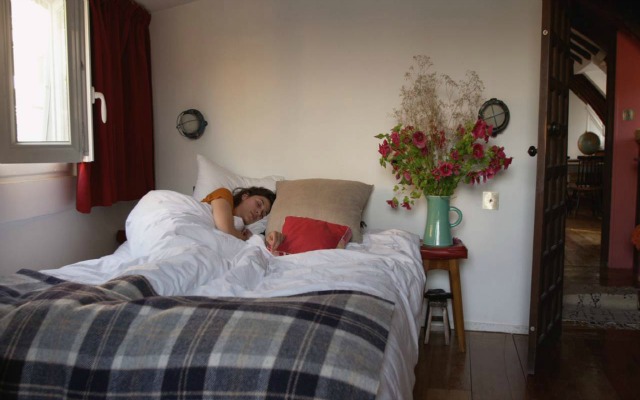Rahm Wants To Tax Airbnb Rentals For Affordable Housing Funds
By Mae Rice in News on Jan 13, 2016 9:55PM

Airbnb
Mayor Rahm Emanuel wants to "make it easier" for people to “periodically” rent out their homes through Airbnb and other home-sharing services—by regulating them more.
He proposed a new regulation at Wednesday's City Council meeting, drafted with Alderman Joe Moore (49th), Alderman Ameya Pawar (47th) and the Department of Business Affairs and Consumer Protection projected to “generate more than $1 million annually to support affordable housing and reduce homelessness in Chicago” if passed.
Under the regulations, hosts or house-sharing companies would have to register rental units with the city online; any property rented more than 90 days a year needs to be licensed more rigorously, as a bed-and-breakfast or a vacation rental.
This will help cut down on unlicensed rentals that bring in no tax revenue, and can be unsafe if they’re in a building that’s say, not up to fire code.
Rental sites will also need liability insurance, covering a minimum of $1 million per incident.
This will all bring in money through a new 2 percent surcharge on bookings, which will apply, along with state and county hotel taxes, to any reservation for an Airbnb, bed-and-breakfast or vacation rental.
Updated on Thursday, January 14: Airbnb has expressed skepticism of Mayor Emanuel's proposed house-sharing regulation. In a statement, the company said:
While the legislation introduced by the Mayor yesterday is an important first step towards ensuring middle class families can continue sharing their homes, and we want to work with the city on this matter, we have real concerns about the substance of the policy as the city seems to be unaware that we have been collecting and remitting hotel taxes in Chicago since February 2015, and are perplexed why someone staying on a couch on the southside of Chicago would be taxed at a higher rate than someone renting out the penthouse of the Four Seasons. Meanwhile, the blanket registration process has the potential to violate the privacy of thousands of middle class Chicagoans and we want to work with the city, as we have done in countless other cities around the world, to provide them the data they need while protecting the privacy of our community.